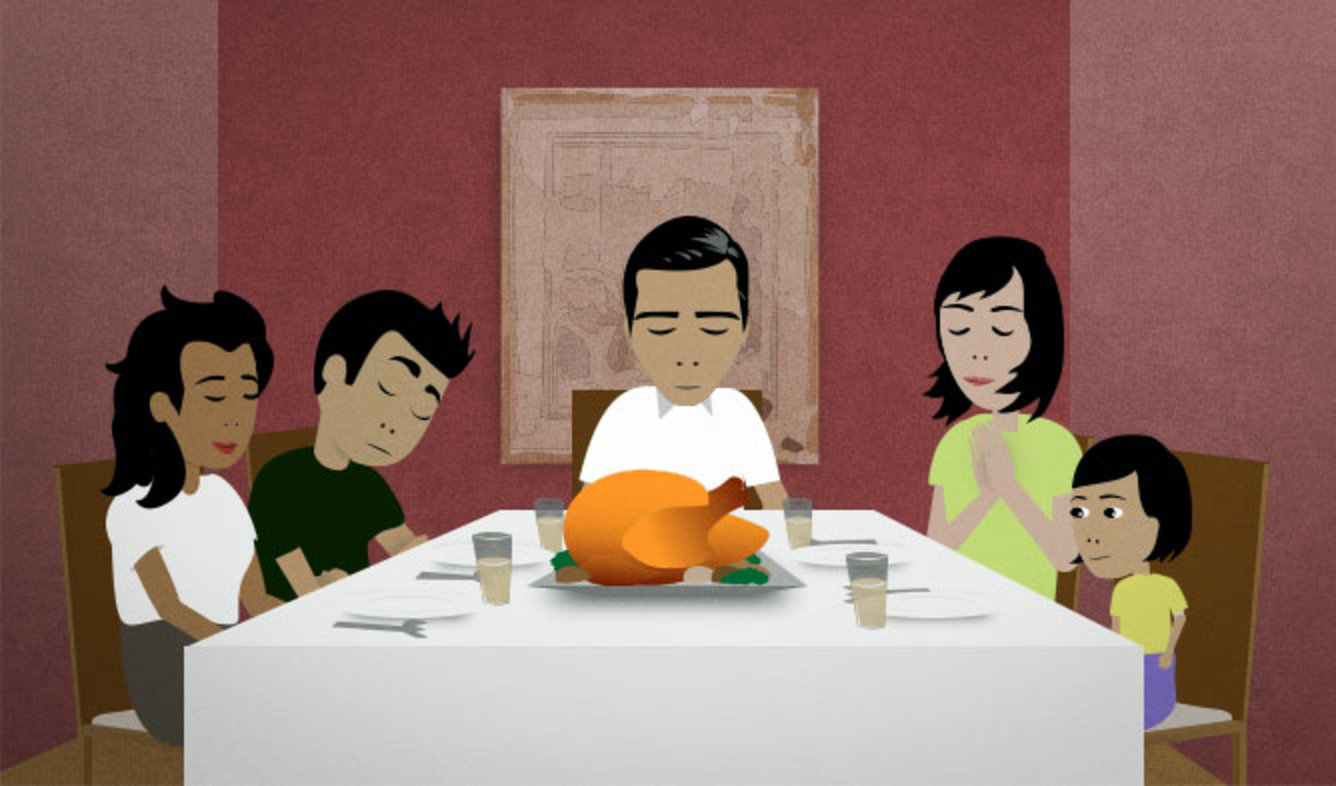“Dear Lord, we thank you for this food that we're about to receive.”
You and your family are having a Thanksgiving day meal together. You've been asked to say a blessing before everyone starts eating. This is how you start it.
Dear Lord, we thank you for this food that we're about to receive.
Want Video and Sound? Follow us on YouTube

(someone) is about to (do something)
"You're about to ___" means "You're going to ___ soon". Here are some examples with "about to":
I'm about to lose my temper with you.
It looks like they're about to begin. Why don't we go find a seat.
Oh, hi Charles. I was just about to call you.
receive (something)
To "receive" something basically means to get it from someone.
We received over a hundred submissions.
The word "receive" is pretty formal. It's used in official documents or in business communication. In normal conversation, "get" is more common:
We got over a hundred submissions.
"Receive" is often used in a pair with the word "give" - there's a famous saying "It's better to give than to receive."
Dear Lord,
This is a common way to start a prayer in English, especially among Protestant (non-Catholic) Christians.
Other common ways to start a prayer include:
Dear God,
Dear Father,
O Father,
Heavenly Father,
(I/we) thank you for (something)
This is a very formal way to thank someone. It is commonly used in prayers. For example:
Lord, I thank you for all the gifts that you have given me.
Another situation in which you might use "we thank you" is in a formal note to your employees or coworkers at work, like this:
We thank you sincerely for all of the hard work that you have done.
